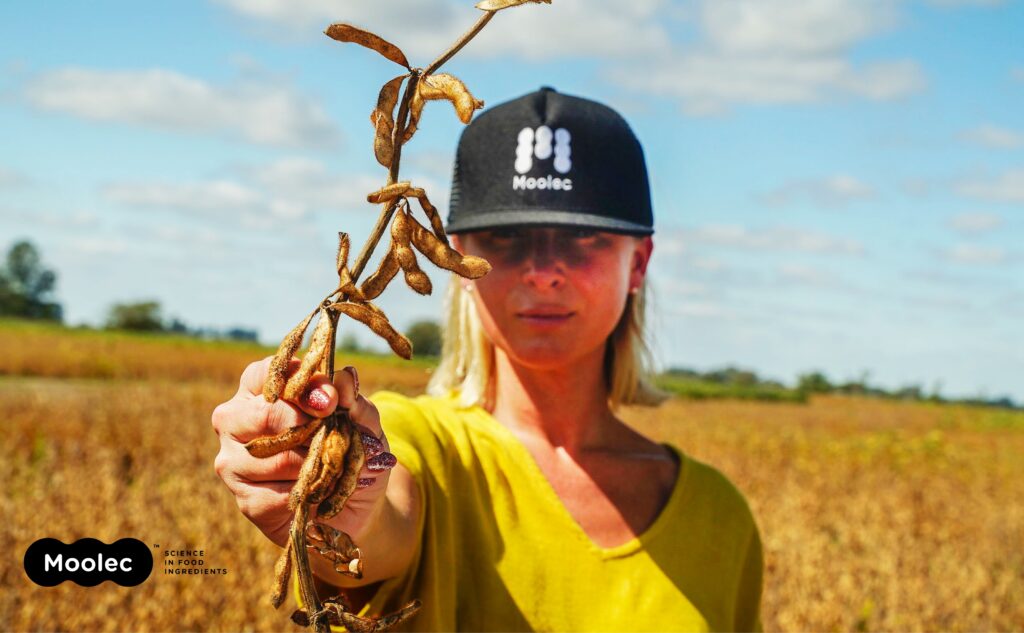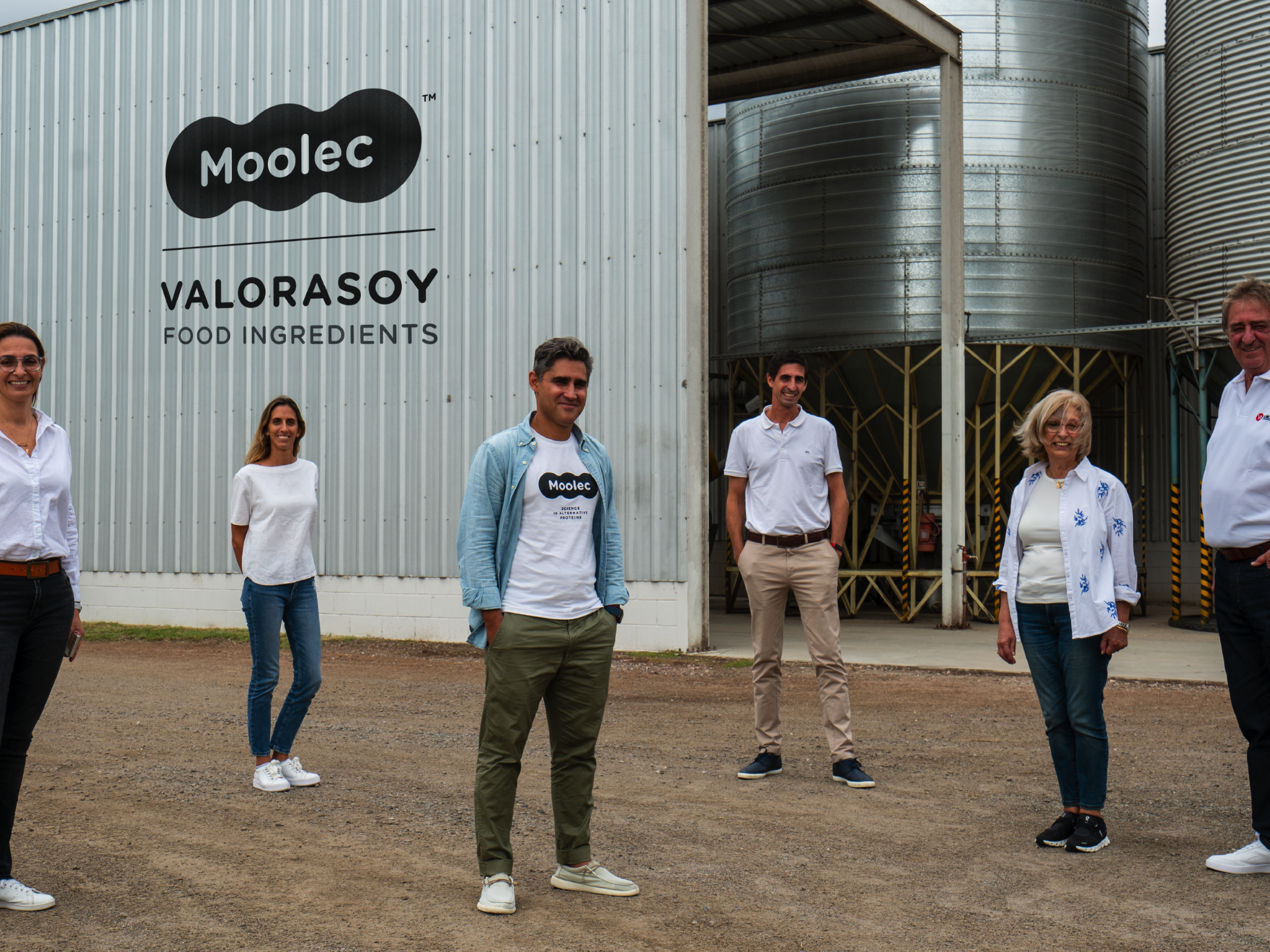Molecular Farming Startup Earns USDA Approval for Peas That Produce Beef Protein
4 Mins Read
Moolec Science has received what it claims is the first USDA approval for genetically engineered peas, which can produce iron-rich beef protein via molecular farming.
Luxembourg-based molecular farming startup Moolec Science has obtained US regulatory approval for PEEA1, which are genetically engineered peas that can produce iron-rich bovine myoglobin.
In a letter marking the completion of the regulatory review, the US Department of Agriculture’s Animal and Plant Health Inspection Service (APHIS) “did not identify any plausible pathway” by which Moolec’s modified garden pea would “pose an increased plant pest risk”.
It is the third instance of regulatory clearance achieved by Moolec in the last 18 months, joining its nutritionally rich GLASO safflower oil and Piggy Sooy (soybeans that contain pork proteins).
“With USDA approval for our genetically engineered pea, Moolec has now secured regulatory clearance for all of our key crops in the US: safflower, soybean, and pea,” said Moolec co-founder and CEO Gastón Paladini.
“We are proud to be the only molecular farming company with three US regulatory approvals and a major commercial contract. This milestone underscores our leadership in the landscape with tangible, science-backed results.”
Targeting iron deficiency with a plant-based source

Myoglobin is a heme protein found in mammalian muscle cells, which facilitates oxygen storage and diffusion in humans and dogs, and is an essential source of taurine for cats. It’s also the protein responsible for the colour and iron content of meat and seafood.
According to a recent scientific review, nearly a quarter of the world’s population suffered from anaemia in 2021 (a direct result of iron deficiency), with cases increasing rapidly for women, expectant mothers, young girls, and children under five. Globally, 31% of women suffered from the condition, versus 17.5% of men. When the amount of iron in the body is too low, it can’t produce enough red blood cells to generate oxygen supply.
Moolec’s genetically engineered peas produce high yields of bovine myoglobin, which allows it to cater to consumers looking for plant-based sources of iron. The company believes the product can hake up the food ingredient market and the $2B pea protein market by offering a nutritious alternative to conventional meat.
Moolec CSO Amit Dhingra called the APHIS approval “a historic development”. “It validates Moolec’s strategic approach and exemplifies our commitment [to] advancing sustainable food production through science and innovation,” he said. “This approval is a critical step toward enhancing global food supply and meeting the growing demand for innovative, nutritious food solutions for the world.”
The APHIS approval allows Moolec to plant the genetically engineered peas in the US, but it would require clearance from the US Food and Drug Administration to commercialise the ingredient.
It has been six months since Moolec confirmed the stable presence of a bovine myoglobin gene in pea seeds, so the product – set to be sold with the beef proteins embedded in its matrix – is still in its infancy. The company has earmarked 2028 for the commercial launch of PEEA1.
Moolec’s revenues swell ahead of GLA-rich oil launch

Moolec’s other ingredients are much further along the way. The company acquired fellow molecular farming player Valorasoy Food Ingredients last year, taking over its industrial demo centre to sell texturised soy protein flours to B2B clients.
Meanwhile, GLASO – an oil with thrice as much GLA (an omega-6 fatty acid) – is coming to market next year, following an offtake agreement with a major CPG and pet food player, which would see the later use an initial 50 tonnes of the oil in 2025. Moolec is expecting to harvest 300-400 tonnes of GLA-rich safflower seeds this month. GLASO is also being used to develop a bovine chymosin protein, which is used in cheesemaking.
Then there’s Piggy Sooy, which earned APHIS approval in April and is currently undergoing field trials in three US states, with a launch targeted for 2027. Finally, it is also working on YEEA1, a dietary supplement and food ingredient derived from yeast.
Moolec is among a number of companies engaged in molecular farming, where scientists modify plant cells to express animal proteins, which can be harvested from leaves or other plant tissues. It allows startups to scale up faster while lowering production costs, since instead of using expensive bioreactors, they’re using plants as the factories.
Research suggests it’s a market that could be worth $3.5B by 2029, and Alpine Bio, Mozza, Miruku, Tiamat Sciences, Bright Biotech, ORF Genetics, PoLoPo, and NewMoo are all innovating in this field.
Moolec – which is listed on Nasdaq – is one of the pioneers, and raised $30M to fund R&D and scale-up efforts last year. The company reported a revenue of $5.8M (primarily from the Valoraoy ingredients) in 2024 in its latest earnings report, compared to $1M last year, against a rise in operating losses to $9.3M. The company now aims to capitalise on the revenue growth in 2025, driven by the introduction of the GLASO ingredient.



